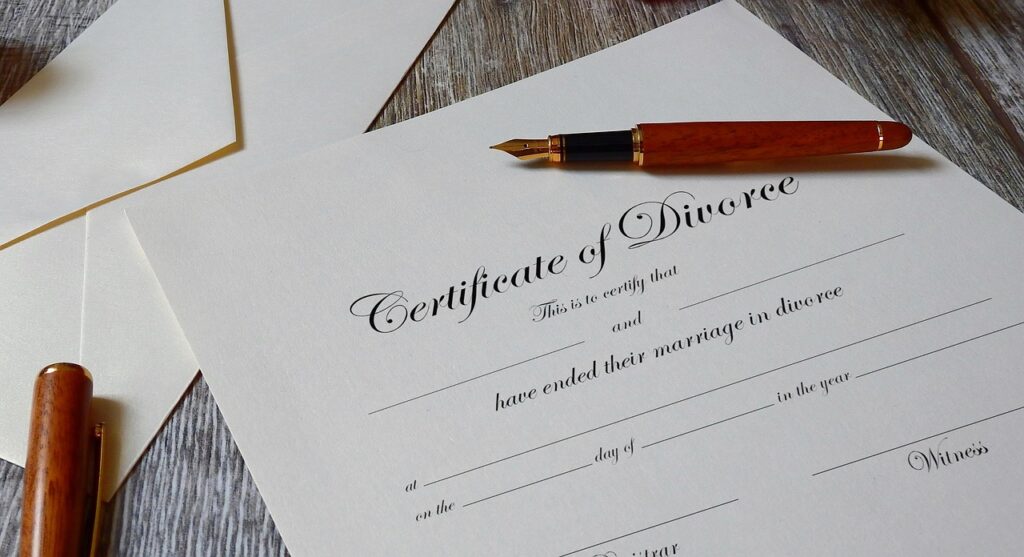Now Reading: Your Guide to Divorce Law: How to Protect Your Interests in Court
-
01
Your Guide to Divorce Law: How to Protect Your Interests in Court

Your Guide to Divorce Law: How to Protect Your Interests in Court
Divorce is a life-altering event that affects not only your emotional well-being but also your financial and legal standing. Understanding divorce law is essential to ensure that your interests are protected as you navigate the court process. From child custody to asset division, the stakes are high, and being well-prepared can make a significant difference in the outcome of your case. In this guide, we’ll cover key aspects of divorce law and offer practical advice on how to protect yourself during what can be an overwhelming experience.
Understanding the Basics of Divorce Law
Divorce law governs the legal dissolution of a marriage and includes issues like spousal support, child custody, and the division of marital property. Divorce can be contested or uncontested, depending on whether both parties agree on the terms. In an uncontested divorce, couples mutually agree on the division of assets, custody, and other matters. However, in a contested divorce, disputes arise, and a court may have to intervene to resolve these disagreements.
Each state or country has its specific divorce laws, and some may require a separation period before filing for divorce. Familiarizing yourself with the rules that apply to your jurisdiction is a critical first step. This legal framework will impact your approach to negotiations and court proceedings, so it’s important to consult an attorney early on who can help you understand the specifics of your local divorce laws.
Hiring the Right Attorney
One of the most important steps in protecting your interests in court is hiring the right attorney. Good and compassionate divorce attorneys will have extensive experience in family law, specifically in handling cases similar to yours. They should also understand the nuances of negotiation, mediation, and litigation. While it might be tempting to hire a general attorney to save costs, having a lawyer who specializes in divorce will give you a strategic advantage.
Your attorney will guide you through every step of the process, from filing the initial paperwork to representing you in court if necessary. During the hiring process, ask potential attorneys about their experience with cases like yours and how they would approach your specific situation. This will help you assess whether they have the expertise and style that best matches your needs.
Preparing Financial Documents
Divorce proceedings often require extensive documentation of your financial situation. Courts will look at income, assets, debts, and expenses to determine how to divide property and whether spousal support (alimony) is necessary. It’s crucial to have all of your financial documents in order before your case goes to court.
These documents should include tax returns, pay stubs, bank statements, retirement account information, and a list of all debts and assets, including any shared property or businesses. This financial transparency is important not only for your legal case but also for ensuring that you receive a fair share of marital assets. Failure to disclose assets can result in penalties and may negatively affect the outcome of your case.
Protecting Your Assets
In many divorce cases, the division of assets becomes a major point of contention. To protect your financial interests, start by identifying which assets are considered marital property and which are considered separate property. Marital property includes anything acquired during the marriage, while separate property generally refers to assets owned before the marriage or acquired through inheritance or gifts.
If you’re concerned that your spouse may attempt to hide or deplete assets, you may want to take action to safeguard them. This can include freezing joint accounts or taking an inventory of valuable items in your possession. If necessary, your attorney can file an injunction to prevent your spouse from moving or hiding assets until the court makes a final ruling.
Child Custody and Support
Child custody is often one of the most emotionally charged aspects of a divorce. Courts generally make custody decisions based on the best interests of the child, taking into account factors like each parent’s financial stability, living situation, and relationship with the child. It’s crucial to demonstrate your ability to provide a stable and nurturing environment if you’re seeking primary or shared custody.
Child support is another issue that often arises during divorce proceedings. The court may require the non-custodial parent to provide financial support for the child’s upbringing, which includes expenses like education, medical care, and day-to-day living costs. Be sure to present clear evidence of your financial situation and your child’s needs to ensure that any child support agreements are fair and adequate.
Managing Emotional and Mental Health
Divorce is not only a legal process but an emotional one as well. The stress and emotional toll of a divorce can cloud your judgment, making it more difficult to protect your interests in court. It’s important to prioritize your mental and emotional health throughout the process. Working with a therapist or counselor can help you manage the emotions that arise and give you clarity when making important legal decisions.
Avoid making hasty decisions based on emotional reactions, especially when it comes to issues like custody, asset division, or spousal support. Maintaining a clear head will allow you to make informed decisions that protect your long-term interests, rather than seeking short-term emotional relief.
Negotiating a Fair Settlement
Most divorce cases are settled before they ever reach a courtroom. Negotiating a fair settlement with your spouse can save time, money, and stress, but it requires a well-thought-out strategy. Be prepared to compromise on some issues, but also know your bottom line—what you absolutely cannot afford to give up.
Having an attorney who is skilled in negotiation can make all the difference in reaching a favorable settlement. They can help you identify areas where you can give and take, ensuring that you receive a fair outcome without dragging the case into prolonged litigation. A good negotiation often leads to a quicker resolution, which benefits both parties emotionally and financially.
Preparing for Court
If your divorce does end up going to court, preparation is key. Your attorney will guide you through the process, but it’s important to understand what to expect. In court, both parties will present evidence and testimony to support their claims regarding asset division, child custody, and other matters. The judge will then make a ruling based on the evidence presented.
Prepare, and review your financial documents, communicate with your spouse, and any evidence that supports your claims. You should also work with your attorney to rehearse your testimony, ensuring that you present your case clearly and confidently.
Navigating divorce law is complex, but with the right preparation and legal support, you can protect your interests in court. From choosing the right attorney to safeguarding your assets and preparing for child custody decisions, every step you take will influence the outcome of your divorce. Staying organized, focusing on the long-term picture, and keeping your emotions in check will put you in the best position to move forward with your life after divorce.











